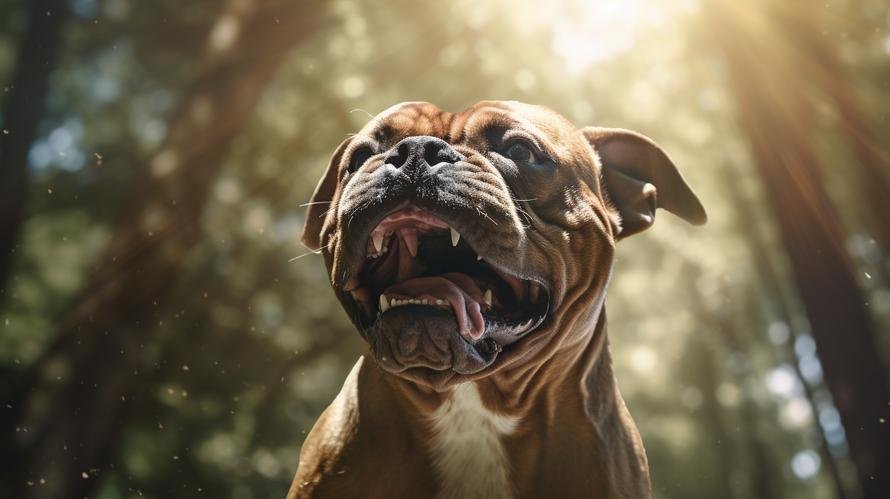Did you know that Boxers actually belong to the “working group” of dog breeds? They’re traditionally used for jobs such as hunting wild game or as war dogs! But, does this practical and historical side of Boxers translate into them being dangerous companions? Let’s dive in!
Boxers are known for their muscular physique, bounding energy and deeply expressive faces. They’re the “clowns” of the dog world – loveable, playful, and always full of energy. They often have a reputation for being protective, but does this make them a dangerous choice for a pet? In fact, Boxers are renowned for their affection towards their human companions and their tolerance towards children. Yet, like any breed, they have traits and behaviors that can cause concern if not managed properly.
So, let’s uncloak this “dangerous” label and how it came to be associated with this bouncy, tail-wagging breed, and whether it truly holds any validity.
Back during the two World Wars, Boxers were often used as military dogs due to their strength, intelligence, and excellent sense of smell. They were used to carry messages, serve as guard dogs, and sometimes even pull stretchers carrying the wounded. Naturally, these roles required certain characteristics such as aggression, courage, and protective instincts; traits that might make them seem dangerous. Fast forward to today, their job roles have dramatically rigged as therapy dogs, assistance dogs for the disabled, search and rescue dogs, and police dogs in K9 units.
Boxers, by nature, are protective of their family, including their human siblings. This might sound worrying, but it simply means they are always on the lookout for threats. It doesn’t mean they will react aggressively without a valid reason. As a responsible pet owner, it’s your duty to familiarize your Boxer with different environments, people, and animals, ensuring they learn what normal, non-threatening situations are.
You know how children sometimes struggle to channel or express their energy properly and might seem naughty or disruptive? Well, Boxers can be quite similar. They’re infamous for their high energy levels and without regular exercise and stimulus, they may resort to destructive behaviors. This is more a sign of boredom or frustration, rather than danger.
Training and socializing your Boxer from a young age will insure against any potentially negative traits turning into problematic behavior. Boxers are intelligent dogs who are eager to please, which makes them relatively easy to train. They respond much better to positive reinforcement methods such as treats and praise, rather than harsh punishments.
The temperament of a Boxer is largely determined by its upbringing. With proper training and socialization, Boxers can be made comfortable and congenial in almost all environments. While cautious around strangers, they aren’t necessarily aggressive. They reserve their judgment until the stranger’s intentions are clear. This natural wariness doesn’t make them dangerous, rather, makes them alert and protective.
It’s also worth mentioning that the so-called ‘dangerousness’ of a Boxer or any other dog breed largely depends on the individual dog as well, not just the breed. Just as in humans, dogs also have unique personalities that are influenced by a variety of factors, including genetics, environment, socialization, training, and health.
Statistics suggest that many reported incidents of dog-bite related injuries are from certain breeds like Pit Bulls or the Rottweiler, but it’s essential to remember breeds aren’t representative of every dog in that breed. Not all Boxers, Rottweilers, or Pit Bulls are dangerous, and not all small or usually calm breeds are safe. Each potential pet should be evaluated on an individual basis and not judged on breed stereotypes.
Ultimately, the answer to whether a Boxer is a dangerous dog is: it depends. With the right education, training, and socialization, a Boxer can be a loyal and affectionate pet. They’re loving, fun-loving companions who will fill your house with energy and laughter.
To sum it all up, if you’re considering bringing a Boxer into your home, remember, they need your time, affection, and dedication to training. In return, they’ll offer you their unwavering love and protection, and sprinkle every day with their humorous and charming antics! Also remember, the only “dangerous” thing about a well-loved, well-raised Boxer is probably the risk of being showered with slobbery kisses!



